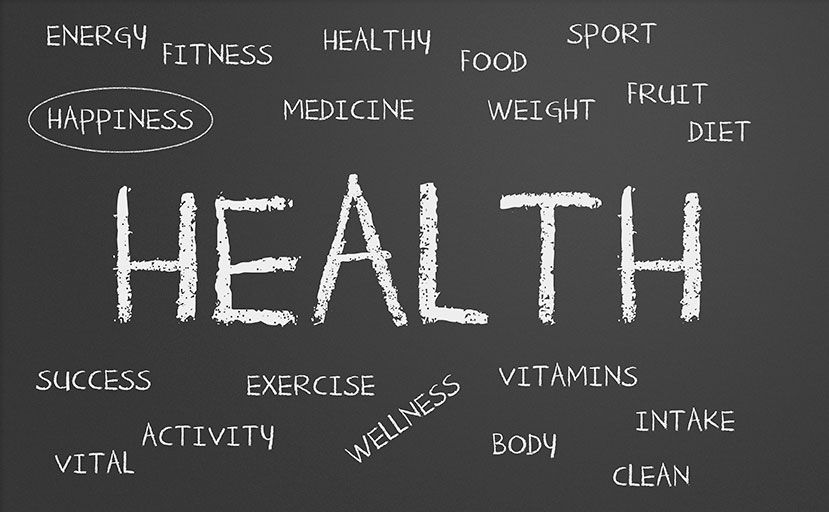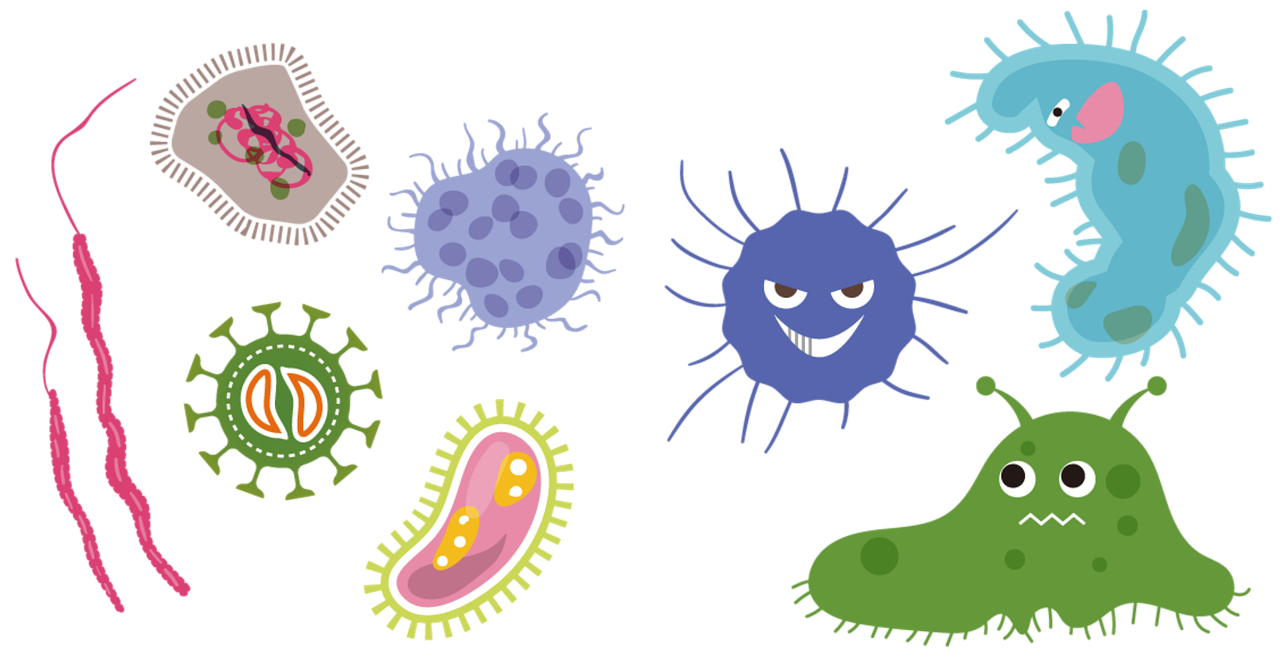

The Subtle Aftermath of COVID-19: How Our Overall Health Has Declined and How to Fix It!
Beyond the direct effects of the virus, there has been a subsequent shift in our health due to drastic changes in diet, lifestyle, and stress levels. A focal point in this shift is the health of our gut.
Karen Wright

Are you a woman over 35 struggling to shed those stubborn pounds? You're not alone. Read More
Karen Wright

Hello Wellness Enthusiasts!
As the temperatures soar, it's essential to stay cool and refreshed while still enjoying your favorite foods. In this article, I'll delve into the concept of thermogenic and cooling foods and provide you with some tips on how to incorporate them into your diet to beat the heat.
What are Thermogenic Foods
Thermogenic foods are those that increase your body's metabolic rate, helping to burn calories and generate heat. While this may seem counterintuitive during hot weather, thermogenic foods can actually help to stimulate digestion and improve overall energy levels. Examples of thermogenic foods include:
- Spicy foods like chili peppers, wasabi, and ginger
- Citrus fruits like oranges, grapefruits, and lemons
- Leafy greens like spinach and kale
- Whole grains like brown rice and quinoa
What are Cooling Foods
Cooling foods, on the other hand, are those that have a natural cooling effect on the body. These foods can help to reduce inflammation, soothe digestive issues, and even lower body temperature. Some examples of cooling foods include:
- Cucumbers
- Melons like watermelon and cantaloupe
- Berries like strawberries and blueberries
- Herbs like mint and basil
- Dairy products like yogurt and cheese
Tips for Eating "Cool" Foods in Hot Weather
- Eat cooling foods at the right time: try to consume cooling foods during the hottest part of the day (usually between 11 am and 3 pm) to help your body regulate its temperature.
- Balance thermogenic and cooling foods: Make sure to balance your diet by incorporating both thermogenic and cooling foods. This will help to maintain a healthy metabolism while also providing relief from the heat.
- Choose hydrating ingredients: Focus on ingredients that are high in water content, such as cucumbers, celery, and tomatoes, to help keep you hydrated.
- Avoid heavy meals: Instead opt for lighter meals during the summer months to prevent digestive discomfort.
- Experiment with new recipes: Try new recipes that incorporate cooling ingredients, like gazpacho soup or cucumber-lime smoothies, or the cucumber melon salad recipe included below.
Ready to beat the heat and stay cool this summer? Make an appointment today to learn more about incorporating thermogenic and cooling foods into your diet for a refreshing and healthy lifestyle. Don't wait, book your appointment now and take the first step towards a cooler, more energized you!
Warmly,
Karen
Karen Wright

Hello Wellness Enthusiasts!
As temperatures soar, it's crucial to stay hydrated, but not all water is created equal. Many of us rely on tap water for our hydration needs, but did you know that municipal water often contains toxic heavy metals above healthy limits? This is why investing in a good water filter can make a big difference in your health and hydration levels, especially during these hot summer days.
What's in Your Water?
Municipal water supplies are treated to meet safety standards, but they can still contain contaminants. According to the Environmental Working Group (EWG), tap water can contain a cocktail of pollutants, including heavy metals like lead, mercury, and cadmium. These metals can leach into the water from pipes and plumbing fixtures, especially in older buildings. Many cities publish their drinking water quality reports on line. You can find yours by googling drinking water quality report, [insert name of your city]
The Dangers of Heavy Metals
Exposure to heavy metals can have serious health consequences. Lead, for example, is a neurotoxin that can affect brain development in children and cause high blood pressure and kidney damage in adults. Mercury is another dangerous heavy metal that can impair neurological development in fetuses and young children.
The Benefits of Filtered Water
Filtering your water can help reduce your exposure to these harmful contaminants. A high-quality water filter can remove heavy metals, chlorine, and other impurities, ensuring that you have clean, safe water to drink. Not only does filtered water taste better, but it can also improve your overall health and well-being.
Choosing the Right Water Filter
When choosing a water filter, look for one that is certified to remove heavy metals. The NSF International and the Water Quality Association are two organizations that certify water filters for their effectiveness. Consider a filter that uses activated carbon, reverse osmosis, or ion exchange to remove contaminants. If you choose a portable water filter, try one of the filters tested by the Environmental Working Group and shown to remove 100% of tested PFAS (forever chemicals): (the links will take you directly to Amazon)
Zero Water - affordable but filters must be replaced much more often and the reservoir is smaller so you'll have to refill the pitcher more often
Clearly Filtered Water Pitcher - expensive but it removes 100% of PFAS with a large pitcher size but according to the EWG, it can be difficult to install the filter correctly and the water takes much longer to filter through.
Travel Berkey - expensive but it removes 100% of PFAS; non plastic design and the filters last for a long time (more than 8 years at 2 gallons per day according to the EWG)
And even if your municipal water supply is free of chemicals, if your household plumbing contains lead pipes, you may want to test your household water. For more information, check out the EPA Home Water Testing Facts Sheet. There are several inexpensive tests to choose from on Amazon.
How to Tell If You're Hydrated
A simple way to gauge your hydration levels is by the color of your pee. Ideally, your urine should be a pale, straw-like color. Darker urine can indicate dehydration, while completely clear urine might suggest overhydration. Monitoring your urine color is an easy and effective method to ensure you're drinking enough water, especially during hot weather.
Stay Hydrated, Stay Healthy
As the temperatures continue to rise, remember to stay hydrated with clean, filtered water. Investing in a good water filter can help protect you and your family from the dangers of heavy metals and other contaminants in tap water. So, stay cool, stay hydrated, and stay healthy this summer!
Warmly,
Karen
This post may contain affiliate links, which means that I may receive a small commission if you make a purchase using these links.
Karen Wright

Hello Wellness Enthusiasts!
In the pursuit of a healthy lifestyle, many people focus on diet, exercise, and mental well-being. However, there's a silent saboteur lurking in many homes that can derail even the most dedicated health efforts: mold. While mold is commonly known for its respiratory effects, recent research has revealed a startling connection between mold exposure and weight gain.
The Link Between Mold and Weight Gain
Mold produces mycotoxins, which are toxic compounds that can disrupt your body's hormonal balance. This disruption can lead to various issues, including weight gain or an inability to lose weight. When mycotoxins enter your body, they can affect your metabolism, thyroid function, and insulin sensitivity. As a result, your body may store more fat and struggle to shed excess weight.
Additionally, mold exposure can cause inflammation, which is a significant factor in weight gain and obesity. Inflammation can interfere with the body's ability to process nutrients and regulate fat storage, leading to increased fat accumulation and difficulty in losing weight.
Symptoms of Mold Sensitivity
Mold sensitivity can manifest in a variety of ways, making it challenging to pinpoint the source of health issues. Some common symptoms include:
Respiratory Problems: Chronic cough, wheezing, and shortness of breath.
Fatigue: Unexplained tiredness and chronic fatigue syndrome.
Headaches: Frequent headaches or migraines.
Skin Issues: Rashes, itching, and hives.
Cognitive Issues: Brain fog, difficulty concentrating, and memory problems.
Digestive Problems: Nausea, vomiting, diarrhea, and stomach pain.
Mood Swings: Anxiety, depression, and irritability.
If you have been experiencing these symptoms and have unexplained weight gain or difficulty losing weight, mold exposure could be a contributing factor.
The Importance of Testing for Mold Exposure
Testing for mold exposure is a critical step in confirming its presence and understanding its impact on your health. Comprehensive testing can help identify the types and levels of mold in your environment and your body, providing crucial information for targeted interventions.
Take Control of Your Health
Addressing mold exposure involves identifying and removing the source of mold in your home, as well as supporting your body's detoxification processes. This can be a complex and daunting task, but you don't have to do it alone.
Call to Action:
Ready to tackle mold exposure and regain control of your health? Schedule a free 30-minute appointment with me today. During this consultation, we will:
Assess your symptoms and potential mold exposure.
Offer guidance on supporting your body's natural detoxification processes.
Develop a customized plan to help you achieve your weight loss and wellness goals.
Don't let mold control your life any longer. Take the first step towards a healthier, mold-free lifestyle. Click here to schedule your free 30-minute discovery appointment.
Understanding the hidden factors that impact your health is crucial for long-term wellness. Mold exposure is a serious but often overlooked issue that can significantly affect your weight and overall health. By addressing mold in your environment, confirming exposure through testing, and supporting your body's ability to detoxify, you can overcome these challenges and achieve your health goals.
Take Action Today!
Stay healthy and mindful!
Warmly,
Karen
Karen Wright


Hello and welcome to my latest wellness newsletter! Today, I'm diving into a crucial, yet often overlooked aspect of weight loss: the importance of detoxification before embarking on a weight loss journey. This step is not just beneficial; it's essential for your health and the effectiveness of your weight loss plan.
Why Detox Before Losing Weight?
Understanding Toxins in Fat Cells: Our bodies are incredible machines, adept at storing energy and protecting us from harm. One way the body does this is by storing toxins in fat cells. These toxins, which we accumulate from various sources like food, the environment, and lifestyle choices, are tucked away safely in our adipose (fat) tissues. This mechanism keeps these harmful substances away from vital organs where they can cause more damage.
The Release of Toxins During Weight Loss: When you lose weight, fat cells shrink and release not only energy but also the stored toxins into your bloodstream. Without a proper detoxification strategy, these toxins can circulate throughout your body, potentially leading to unpleasant symptoms, aka the Detox Flu, and hindering further weight loss. Symptoms can include fatigue, headaches, and a feeling of unwellness, all of which can derail your weight loss efforts.
Enhanced Weight Loss Efficiency: Detoxing before starting a weight loss program can help clear these toxins, ensuring a smoother, more efficient weight loss process. It prepares your body to handle the changes and stresses that come with losing weight, making the journey more comfortable and effective.
How to Detox Safely:
Detoxing is not about extreme diets or harsh cleanses. It's about supporting your body's natural detoxification systems through healthy eating, adequate hydration, regular exercise, and possibly, the use of certain supplements or detoxification protocols, as advised by health professionals. Join me for a new science-based detox program: 21 Day Whole Foods Detox Prigram, where you'll learn how to support your detox organs while eliminating accumulated toxins from your body healthfully and deliciously. The program is based on whole foods that are reasily accessible at your local grocer. More to come in the next newsletter.
Conclusion:
In conclusion, detoxing before losing weight is a critical step in ensuring a successful and healthy weight loss journey and is often considered the missing link for those who've had trouble losing weight. By understanding the role of toxins stored in fat cells and preparing your body through detoxification, you set the stage for more effective and comfortable weight loss.
Ready to start your weight loss journey with a healthy and informed approach? Contact me today to schedule an appointment and learn more about this personalized detox and weight loss programs. Let me help you achieve your health goals in the safest and most effective way possible. Make your health a priority: schedule your appointment today!
Karen Wright


In today’s fast-paced world, respiratory health is more important than ever. With pollution levels rising and seasonal allergies becoming more aggressive, and the spike in COVID and RSV cases increasing, it's vital to fortify our lungs against these external aggressors. Fortunately, nature has provided us with an arsenal of phytonutrients (i.e. nutrients from plants) that can bolster our respiratory system. These powerful compounds, found in everyday foods, play a crucial role in maintaining and enhancing lung function.
Vitamin C, a well-known antioxidant, supports the immune system and can help reduce the duration of common colds (Feyaerts & Luyten, 2020). Citrus fruits like oranges, lemons, and grapefruits are rich in this vital nutrient. One cup of unsweetened cranberry juice provides about a quarter of the day's Vitamin C needs and also supports our immune system and digestive health.
Another key player is beta-carotene, which the body converts into vitamin A, essential for healthy mucous membranes in the respiratory tract. Foods high in beta-carotene include pink and orange fruits and vegetables such as carrots, sweet potatoes, and leafy greens. Cod liver oil is an excellent source of Vitamin A and now comes in a much more palatable form of softgel. Or you can take a beta carotene supplement to ensure you are getting enough, a kind of health insurance policy.
Flavonoids, found in apples, berries, and onions, have anti-inflammatory properties that can aid in reducing respiratory symptoms.
Omega-3 fatty acids, present in cold water fish like salmon, sardines, mackerel, and haddock are known for their anti-inflammatory effects and can help improve lung function.
Vitamins and mineral supplements can be a good insurance policy to ensure you are getting the nutrients you need by filling nutritional gaps in your diet. Getting our nutrients from food is always my first choice, but supplements can fill the holes in our diet. Check out my professional pharmacy, Fullscript.com, and receive a discount on all your supplement needs. I've put together a recommendation for professional grade vitamins for respiratory health. Just click on the Fullscript link and then click on the "Catalog" tab to view my recommendations.
Incorporating these phytonutrients into your diet is a step towards stronger respiratory health, but for personalized advice tailored to your unique needs, consider making an appointment for a nutrition strategy session to see how we can work together to optimize your health.
As a nutrition expert, I can provide you with a customized nutrition plan that targets your specific health goals, including enhancing your respiratory health. Don’t wait for symptoms to arise. Take control of your health today and breathe easier tomorrow. Schedule your nutrition consultation now and embark on a journey to optimal wellness.
How to incorporate these foods into your daily diet plan
- Start your day with a berry smoothie or with a small fruit salad including melon, berries, apples,
- Include 2-3 cold-water fish meals in your weekly meal plan.
- Add a side salad to lunch and dinner with shredded carrots, tomatoes, or radish dressed with vinaigrette dressing
For a more personalized plan, schedule an appointment today. There are limited number of free spots, Schedule your appointment toay.
Remember, the journey of a thousand miles, begins with a single step. Stay patient, persistent, and positive, and you'll be amazed at what you can accomplish.
I look forward to hearing from you.
Warmly,
Karen
REFERENCES
Feyaerts, A. F., & Luyten, W. (2020). Vitamin C as prophylaxis and adjunctive medical treatment for COVID-19?. Nutrition (Burbank, Los Angeles County, Calif.), 79-80, 110948. https://doi.org/10.1016/j.nut.2020.110948
Shakoor, H., Feehan, J., Al Dhaheri, A. S., Ali, H. I., Platat, C., Ismail, L. C., Apostolopoulos, V., & Stojanovska, L. (2021). Immune-boosting role of vitamins D, C, E, zinc, selenium and omega-3 fatty acids: Could they help against COVID-19?. Maturitas, 143, 1–9. https://doi.org/10.1016/j.maturitas.2020.08.003
Stephensen, C. B., & Lietz, G. (2021). Vitamin A in resistance to and recovery from infection: relevance to SARS-CoV2. The British journal of nutrition, 126(11), 1663–1672. https://doi.org/10.1017/S0007114521000246
Karen Wright

Happy New Year! As we bid farewell to 2023 and welcome 2024, many of us are setting New Year's resolutions with the hope of bettering ourselves and our lives. But let's be honest, how many of us have seen our resolutions dissolve by February. This year, let's change that! In this edition, I'll dive into proven strategies supported by science to set and maintain successful New Year's resolutions.
Setting the Stage for Success
1. First and foremost, know your "WHY:" Understanding the reasons behind setting resolutions, commonly known as your "WHY," is crucial for long-term success and motivation. According to psychologists, knowing your own personal underlying motivations for a goal adds purpose and significance, making it more sustainable and fulfilling (Ryan & Deci, 2000). This self-awareness aligns with the Self-Determination Theory, emphasizing the importance of intrinsic motivation – doing something because it is inherently satisfying. This approach shifts focus from external validation to personal growth and self-improvement. Understanding your WHY makes your resolutions more than just tasks; they become part of a meaningful journey towards personal fulfillment.
2. Set a specific and reasonable goal: Just the act of setting a goal is motivational and provides purpose to achieving “something better.” (Chowdhury, 2023) The more specific your resolution, the better. Instead of saying, "I want to lose weight," say, "My goal is to lose 10 pounds by April." This makes your goal measurable and attainable.
3. Make a reasonable plan and write it down: Large goals can be overwhelming. Break them into smaller, manageable steps. For example, if your goal is to improve your health, start by writing down what steps you need to take to achieve your goal. Be specific and make those steps achievable and measurable. For example, replace your afternoon snacking with fruit or add a side salad to lunch and dinner.
4. Write it Down: Documenting your goals can make them feel more concrete. People who wrote down their goals were significantly more likely to achieve them compared to those who didn't (Chowdhury, 2023).
Staying on Track:
1) Track Your Progress: Regularly check in on your progress. This not only motivates but also helps in identifying and rectifying any deviations from your plan. It can be as simple as putting a note in your calendar or downloading a fitness app. One of my personal favorite smartphone apps is Argus.
2) Stay Flexible: Be open to modifying your goals if circumstances change. Flexibility is key to maintaining your resolutions long-term. Life coach Tony Robbins suggests that adaptability is an essential component of achieving goals. For example, if you had a goal of making a homemade dinner every night and found that you just didn't have the time or energy to do so, try modifying your goal to making dinner over the weekend and freezing it until you need it or make simpler dinners.
3) Seek Support: According to a study published in 2015 (Gardner & Albee, 2015) writing down your goals and regularly checking in with a partner was a determining factor in whether or not the participants achieved their goals. In the aforementioned study, participants were divided into 5 groups as follows:
a) Group 1 simply thought about their goals.
b) Group 2 were asked to write down their goals and to rate them according to difficulty and ability to achieve them.
c) Group 3 were asked to also write down actionable tasks to achieve those goals.
d) Group 4 were asked to write down their goals and actionable tasks and to share their goals and commitments with a friend.
e) Group 5 were asked to do all of the above plus to share their weekly accomplishments with a friend.
At the end of the study, Group 5 was the most successful with 76% of the participants achieving at least half of their goals, compared to Group 1, with 43% of the group achieving at least half of their goals.
The moral of this study is to set goals: You will significantly increase your ability to succeed. Even better, share those goals with a friend. Find an accountability partner and share your accomplishments or barriers to encourage each other to success.
Overcoming Obstacles:
1. Don’t Let Setbacks Derail You: If you slip up, don't give up. Understand that setbacks are a normal part of any journey.
2. Reward Yourself: Celebrate small victories. This could be as simple as taking a moment to acknowledge your progress or treating yourself to something you enjoy.
3. Mindfulness and Self-Reflection: Engage in regular self-reflection to understand your motivations and address any underlying issues that may be hindering your progress. Mindfulness can also help maintain focus and reduce stress.
Looking Ahead:
Remember, the journey of a thousand miles begins with a single step. Your New Year's resolutions are not just about changing habits; they're about optimizing your life. Stay patient, persistent, and positive, and you'll be amazed at what you can achieve.
Click here to schedule a free 30-minute nutrition strategy consultation to discuss your goals and your approach click this link to complete a short form, Nutrition Strategy Consultation Form discussing your goals. At the bottom of that form is a link to schedule an appointment.
I wish you and your loved ones a happy, healthy, and joyful 2024!
Warmly,
Karen
References
Chowdhury, M. R. (2023, September 19). The Science & Psychology of Goal-Setting 101. PositivePsychology.com. https://positivepsychology.com/goal-setting-psychology/
Deci, E. L. & Ryan, R. M., (2000). Self-determination theory and the facilitation of intrinsic motivation, social development, and well-being. The American psychologist, 55(1), 68–78. https://doi.org/10.1037//0003-066x.55.1.68
Gardner, S., & Albee, D. (2015, February 1). Study focuses on strategies for achieving goals, resolutions (dominican.edu)
Karen Wright

The impact of the COVID-19 pandemic has been multifaceted, affecting nearly every aspect of our lives, from social interactions to economic systems. One crucial but often under-discussed impact of the pandemic is its effect on our overall health – and not just through the virus itself. The profound and lasting changes in our lifestyle, eating habits, and stress levels have had unexpected consequences on our well being. Central to this change has been the deterioration of our gut health (Zabetakis et. al, 2020).
The Hidden Costs of Lock downs and Quarantines
During the initial phases of the pandemic, lock downs and quarantines, though necessary for controlling virus spread, inadvertently influenced our health in multiple ways:
Dietary Changes: Many turned to comfort foods, which are typically high in sugar, unhealthy fats, and processed ingredients. These foods can disrupt the balance of beneficial microbes in our gut.
Physical Inactivity: Gym closures, stay-at-home orders, and general fear of the outdoors led to a more sedentary lifestyle, which can reduce the diversity and health of our gut microbiome.
Increased Alcohol and Drug Consumption: Alcohol, especially in excessive amounts, can damage the lining of the gut and reduce the number of beneficial bacteria, leading to increased gut permeability and inflammation.
Stress: The Silent Assassin
One cannot discuss the health repercussions of COVID-19 without addressing the increased stress levels. The constant barrage of news, loss of loved ones, economic hardships, and overall uncertainty took a toll on our mental well-being. Chronic stress has long been recognized as a factor that can compromise gut health. It can lead to changes in gut motility, increase gut permeability, and even alter the composition of the gut microbiota.
Gut Health: More Than Just Digestion
The gut is often dubbed the "second brain," and for a good reason. It houses trillions of microbes that play a pivotal role in our health, far beyond digestion. The gut microbiome influences our immunity, brain health, and even mood. Did you know that the majority of serotonin, the happiness hormone, is produced in the gut? An imbalance in our gut flora, known as "dysbiosis," can result in various issues, from digestive disorders like irritable bowel syndrome (IBS) to systemic problems such as autoimmune diseases and depression.
The COVID-Gut Health Connection
The disruption of our daily routines, combined with increased stress, led to significant alterations in our gut health. With a compromised gut, individuals are more susceptible to infections, inflammatory conditions, and mental health disorders. Recent studies have shown an increase in gastrointestinal problems post-COVID, which might be due to a combination of the virus's direct effect on the gut and the indirect impacts of lifestyle changes and stress.
The Way Forward
While the COVID-19 pandemic brought numerous challenges, it also presented an opportunity to reevaluate our health priorities. To restore and maintain health:
Diet: Incorporate a balanced diet rich in fiber, fermented foods, and diverse plant-based ingredients. These can help replenish and nourish our gut microbiota.
Exercise: Regular physical activity has been shown to benefit gut health by increasing the diversity of gut microbes.
Mindfulness and Stress Reduction: Practices like meditation, yoga, and deep breathing can reduce stress and its adverse effects on gut health. Sleep: Our bodies repair our overall health systems while we sleep, and a sleep deficiency will decrease the ability of our bodies to heal.
In conclusion, the aftermath of the COVID-19 pandemic underscores the intricacies of our health and how various factors, even those seemingly unrelated, can converge to affect our well being. As we move forward, prioritizing our gut health can pave the way for improved overall health and resilience against future challenges.
My suggestion for your this week is to take an assessment of your current diet and lifestyle and make just one simple change this week.
- If you are stressed, can you find 10 minutes a day to find a peaceful environment and just relax for 10 minutes, maybe by listening to music, or going for walk in nature. Meditation is great and there are several free apps for smart phones to help you if you don't know how. (I'll cover meditation and the science behind it in a future blog)
- If you sleep less than 7 to 9 hours a night, trying adding just 15 minutes to your sleep schedule daily this week. End your day with a relaxing ritual
- Maybe getting your thoughts out in a journal
- Take a relaxing cool shower or bath before bed.
- Make sure your bedroom is dark and quiet, using a sleep mask or ear plugs if necessary. (again more coming in future blog post).
- Try lavender essential oil -- put a few drops in the palm of your hand and wipe your palms over your pillowcases.
- If you drink sweetened beverages during the day, replace your sweetened beverages with water or flavored water. You can flavor the water with lemon or other fruit if you like (Blueberries are my favorite).
- Are you a fast-food connoisseur? Think about which days you will commit to bringing lunch from home or buy a more healthful alternative. Lunch can be as simple as left over dinner from last night.
- How many fruits and vegetables do you consume on a typical day. If you need to up your vegetable game, think about adding a side salad to lunch and dinner this week. Salad can be as simple as a bag of salad greens and some grape tomatoes with a vinaigrette. It doesn't have to be gourmet, just mostly green!
- Keep a journal of your goals and accomplishments; small changes add up to big improvements.
Don't overthink this. Just choose one thing to improve and commit to doing it every day this week to improve your health. Better yet, plan to make a change with a friend who will be an accountability partner.
If you need help or just don't know where to start, schedule a free 30 minute telephone or video consultation. I'll be introducing a new program, Reclaim Your Health and Vitality soon to provide targeted personalized help. So stay tuned.
When we improve our diet and lifestyle, we feel better, our moods are elevated, our energy improves and our immune system gets a boost. It's not just about avoiding sickness; it's about living our best lives.
Until next week,
Karen
References:
Zabetakis, I., Lordan, R., Norton, C., & Tsoupras, A. (2020). COVID-19: The Inflammation Link and the Role of Nutrition in Potential Mitigation. Nutrients, 12(5), 1466. https://doi.org/10.3390/nu12051466
Karen Wright

COVID-19 really shook things up for all of us, especially when it comes to what we eat and how we live. It's been a real troublemaker, messing with our health in a big way – packing on those extra pounds, stressing us out, and messing with our sleep (Antwi et al., 2021). I know you're not new to this information! You've felt the effects of this whole pandemic and you're probably eager to take back control of your well-being. So, let's team up and I'll give you the lowdown on some easy achievable changes you can make today to your diet and lifestyle that will seriously boost your health.
Here are a few things I'll discuss in the next few blog posts:
- People piling on the pounds, thanks to emotional eating, stress snacking, and way too much fast food.
- Stress levels hitting the roof, and not in a good way. We're talking about feeling all kinds of stress, anxiety, and even becoming full-blown hypochondriacs all the while contributing to sleep disruption, which increases our anxiety. It's a viscious circle of woe!
- Tossing and turning all night, or worse, barely catching any Zs. d.
- Smoking and booze becoming way too close for comfort – like they're our new BFFs.
- Googling like crazy for nutrition tips, but seriously, you're better off not taking advice from Dr. Google or your social media friends. They're not exactly top-tier sources for good grub guidance.
So, if you're eager to turn things around, stick with me. I'll introduce you to some awesome tweaks you can make to your routine that'll make a world of difference for your health. More to come next week. See you then. Let's do this!
FORMS:
©2015 Zest Nutrition. All rights reserved.
* Bio-IINdividuality, Could One Conversation Change Your Life?, Integrative Nutrition and Institute for Integrative Nutrition are trademarks owned by Integrative Nutrition Inc.
† © 2005 Integrative Nutrition Inc. (used with permission) †† © 2007 Integrative Nutrition Inc. (used with permission)
† © 2005 Integrative Nutrition Inc. (used with permission) †† © 2007 Integrative Nutrition Inc. (used with permission)

